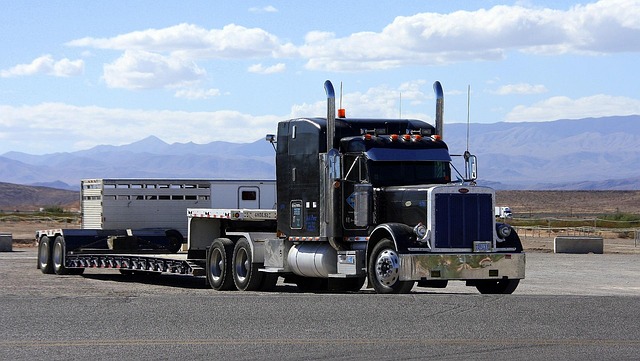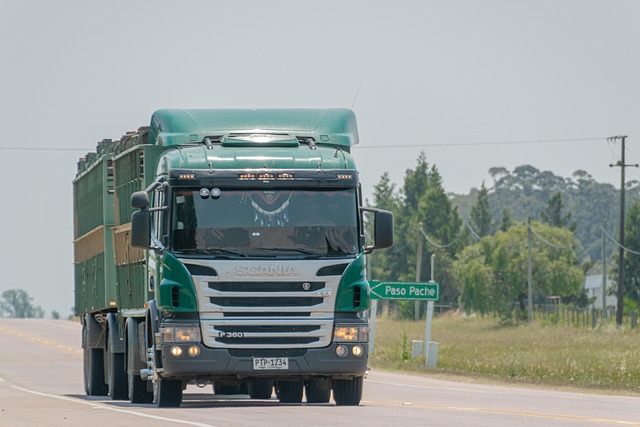Small fleets, especially in trucking, face challenges finding affordable insurance that covers liability, cargo, and physical damage due to complex policy needs and limited access to discounts. They require budget-friendly fleet insurance tailored to their specific risks and tight budgets. Strategies include leveraging fleet discounts, joining industry associations for deals, and customizing policies to only cover necessary aspects. By implementing these approaches, small fleets and trucking businesses can secure comprehensive yet cost-effective coverage aligning with industry regulations.
Obtaining affordable yet compliant insurance for small fleets presents a unique challenge. These operations face distinct risks and budget constraints, making it crucial to navigate legal requirements and industry regulations effectively. This article explores strategies to overcome these hurdles, focusing on understanding the specific needs of small trucking fleets, unlocking cost-saving opportunities, and implementing robust risk management practices. By delving into these key areas, we aim to provide insights for securing both budget-friendly fleet insurance and comprehensive coverage.
Understanding the Challenges of Small Fleet Insurance

Small fleets, often comprising a handful of vehicles and drivers, face unique challenges when it comes to obtaining insurance that balances affordability with compliance. While large fleet operators benefit from economies of scale, small businesses struggle to find budget-friendly options that meet their specific needs. This is particularly true for sectors like trucking, where liability coverage, cargo insurance, and physical damage protection are essential but can be cost-prohibitive.
One of the primary hurdles is accessing fleet discounts, which are often reserved for larger operations. Small fleets also grapple with complex policy requirements, especially when it comes to covering multiple vehicles and drivers under a single policy. They need flexible, cost-effective fleet policies that safeguard against liability claims, cargo losses, and physical damage while aligning with their limited budgets.
– Defining affordable insurance for small fleets

For small fleet owners, defining affordable insurance means striking a delicate balance between adequate coverage and manageable premiums. While every operation has unique needs, essential considerations for small fleets often include liability protection to safeguard against claims related to accidents or damage caused by their vehicles, as well as cargo insurance to protect the value of their goods in transit. Additionally, physical damage insurance is crucial for covering repairs or replacements due to collisions or other incidents. Fleet owners should also look for policies that offer discounts for multiple vehicles, safe driving records, and specific operational needs like hauling hazardous materials, as these can significantly impact overall costs.
Budget-friendly fleet insurance isn’t about sacrificing quality; it involves selecting policies tailored to the specific risks and size of the operation. By carefully evaluating their requirements and shopping around for providers who specialize in small fleet coverage, businesses can find cost-effective solutions that provide peace of mind without breaking the bank. Low-cost trucking insurance is not only possible but achievable through strategic policy choices and proactive risk management practices.
– Unique needs and risks of small trucking operations

Small trucking operations face distinct challenges when it comes to securing affordable yet comprehensive insurance coverage. These businesses often operate on tight margins, making every expense a critical consideration. Their unique risks include varying vehicle types and cargoes, which necessitate tailored liability coverage. Small fleet owners must also navigate complex regulations and be prepared for unexpected events like accidents or cargo damage, requiring robust physical damage insurance.
One of the key strategies to address these challenges is leveraging fleet discounts offered by insurers. Many providers recognize the value of small fleets and provide cost-effective policies that bundle different types of coverage, including liability and cargo insurance. By comparing quotes from multiple carriers and negotiating terms, trucking operations can find budget-friendly options without compromising on essential protections for their vehicles, drivers, and business interests.
– Limited resources and budget constraints

Many small fleet owners and trucking businesses face a significant challenge when it comes to securing insurance that offers both affordability and compliance with industry regulations. Limited resources and budget constraints often mean that finding cost-effective fleet policies can be an arduous task. The financial strain of traditional insurance plans, coupled with the need for comprehensive liability coverage, cargo insurance, and physical damage protection, can leave operators feeling overwhelmed.
To navigate this landscape, small fleets should explore options tailored to their unique needs. Fleet discounts, for instance, are a powerful tool that can significantly reduce premiums. By joining fleet associations or leveraging bulk purchasing power, businesses can access exclusive deals on physical damage insurance and liability coverage. Additionally, customizing policies to cover only necessary aspects of the operation, such as specific cargo types or vehicles, ensures that no extra costs are incurred for unnecessary protections.
Obtaining affordable yet compliant insurance for small fleets can be a complex task, but by understanding the unique needs and risks associated with these operations, businesses can navigate the challenges effectively. Leveraging fleet discounts, comparing cost-effective policies that include liability coverage and cargo insurance, and managing budget constraints are key strategies to secure low-cost trucking insurance without compromising on quality. With the right approach, small fleet owners can find budget-friendly options that meet their physical damage insurance requirements, ensuring both financial protection and operational continuity.
